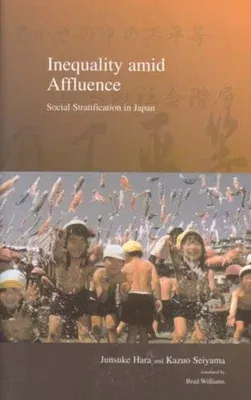Junsuke Hara
(Author)Inequality Amid Affluence: Social Stratification in Japanvolume 1Hardcover, 1 September 2005

Qty
1
Turbo
Ships in 2 - 3 days
In Stock
Free Delivery
Cash on Delivery
15 Days
Free Returns
Secure Checkout

Part of Series
Stratification and Inequality
Print Length
202 pages
Language
English
Publisher
Trans Pacific Press
Date Published
1 Sep 2005
ISBN-10
1876843144
ISBN-13
9781876843144
Description
Product Details
Authors:
Book Format:
Hardcover
Country of Origin:
US
Date Published:
1 September 2005
Genre:
Asian - General
ISBN-10:
1876843144
ISBN-13:
9781876843144
Language:
English
Pages:
202
Publisher: